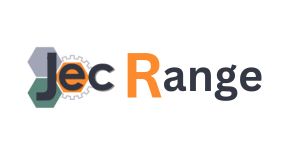Cloud Based Social Network Sites: Under Whose Control?

The Context Of Social Network Sites
This section describes what SNSes are from the technical and legal viewpoints. It also tries to describe the relevant market of SNSes. This latter will then reveal relevance as regards the consent of SNSes users. To these ends, only European law is taken into account.
Social Network Sites and Cloud Computing
In particular, we could call Facebook and similar SNSes7 meta-SNS. This means SNSes that relate to indeterminate contexts. Through them, users can share whatever kind of information they want, from individualized and, generally, nominative profiles. Data whether personal or not and their exchange, are essential attributes of SNSes8. Providers host and manage the profiles completed by users, and what these users share. Applications can sometimes also be added to the profiles9.
This constitutes the principal business promoted by SNS providers: Hosting and making available data to members of the social network10, according to the sharing rules chosen by these users among a range of options (e.g. Facebook’s privacy settings) defined by SNS providers.
The Market of Social Network Sites
European competition law and the economic tools it relies on are useful to give an insight into the SNS market. Taking Facebook as a point of departure, the SNS relevant market has first to be identified. This leads to identifying in a systematic way the immediate competitive constraints faced by an undertaking (EC DG Competition. If there are a lot of SNSes providers in the relevant market of the SNS, the user will be free to choose one or another, depending on his preferences as regards, for instance, price, functionalities, data processing, etc.
However, it would still be necessary that these providers to compete as regards these elements of data protection. After the relevant market has been identified, it is interesting to observe if an SNS provider has a dominant position in this market. Because of this situation, a dominant position could make this provider insensitive to the claim of control arising from society19. Such a situation can prevent web surfers from effectively choosing. Moreover, competition law would prohibit the dominant SNS provider from abusing his position20.
USERS EMPOWERED TO CONTROL
When a specific loss of control has been identified, law but not only law might bring a solution. Hearing that the present paper is focused on law, how does the law or specific parts of it deal with the identified loss of control? Privacy and Data Protection are first studied, from general 155 Cloud-Based Social Network Sites U.E. and U.S. perspectives. Then, two specific topics are evoked: Consent and contract, and the data subject’s right of access. The confidentiality of electronic communications is discussed secondly, in general, and as regards more specifically cookies. Finally, the protection of Internet surfers’ computer terminals is approached as regards hacking in general, a specific concern related to cookies is then addressed.
PRIVACY AND DATA PROTECTION
This section examines users’ loss of control, users understanding of privacy, and addresses these concerns from EU and US perspectives. Solove (2002) interestingly pointed out that: “Not all privacy problems are the same and different conceptions of privacy work best in different contexts. Instead of trying to fit new problems into old conceptions, we should seek to understand the special circumstances of a particular problem.” Such conceptions of privacy will empower the user to recover some control.
Read More: Naasongs





